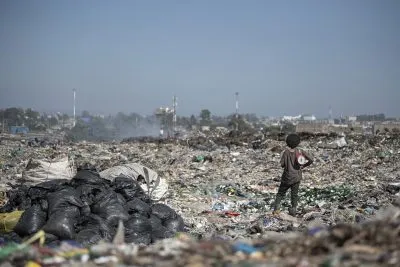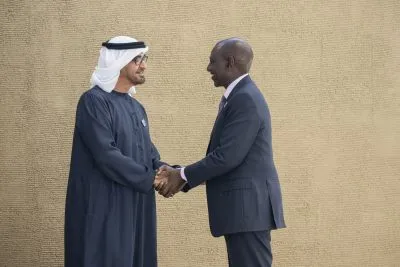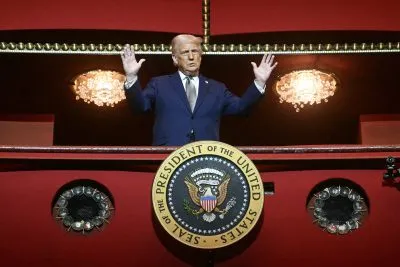Accra and Ghana’s coastal ports of Tema and Takoradi are currently experiencing an unprecedented property boom. Alongside infrastructure and business accommodation, luxury residential complexes are springing up at an ever-increasing rate, as investors bank on the country’s economic good fortune lasting for many years to come. Report by Associate Editor Neil Ford.
Some impressive schemes have been completed or planned but too little heed is being paid to the needs of the bulk of the population that will be unable to afford the shiny new real estate that is on offer.
At the top end of the scale, KHI Ghana is working alongside MAN Enterprise to develop Ambassador Heights, a high standard residential project on a 16-acre site next to the redeveloped Mövenpick Ambassador Hotel, in the capital’s central business district.
A total of 18 luxury three- and four-bedroom homes will have their own gardens but residents will also be able to make use of the hotel’s facilities. KHI Ghana bought the hotel in 2005 and reopened it following a complete overhaul in 2011.
Clovis Abi Nader, the general manager of MAN Enterprise, said: “We are extremely excited to be developing this one of a kind project in Ghana and the region. Ambassador Heights will command a build quality of extremely high international luxury standards. Advanced design work and construction activity is ongoing with completion set for December of 2015.”
Yet while the rich can afford such luxury, most Ghanaians, even among the middle class, struggle to afford any residential property in Accra. As we show in our table on Page 57, a mortgage on an average property would be well out of the reach of a family on an average income. Developers seem to be banking on rich domestic customers and the increasing numbers of foreign workers based in the city.
Many, who have been lured to the country by the economic boom and the country’s oil and gas sector, are able to afford the rising property prices because their salaries are paid according to international levels. However, there must be a limit to the number of Ghanaians who can afford to join them in the short term. The country’s economic transformation should boost income levels and living standards in the long term but the real estate sector should respond to this process incrementally, rather than seeking to transform their property portfolio overnight.
Building with bamboo
Rocketing land prices are part of the problem, while the lack of transport infrastructure restricts the distances over which workers can feasibly commute. However, the fact that Ghana has to import a large proportion of its building materials merely adds further unnecessary costs. New cement production plants should help to counter the problem but the government is supporting an alternative solution.
It is promoting the use of bamboo as a building material: to support local producers, add a local flavour to architectural design, and cut the cement import bill. Bamboo is also very fast growing and considered more environmentally friendly than timber.
The government is therefore offering incentives for companies to set up bamboo processing plants, including for the production of laminated bamboo boards, and will also introduce targets on the proportion of local materials to be used in the construction industry. These targets will increase on an annual basis.
Even apart from the basic building materials involved in construction, Ghana is currently far too reliant on the import of plumbing and electrical parts, plus materials used in doors and windows. Encouraging the growth of local industries in these sectors could be even more of a challenge.
Enthusiasm for property development is not confined to the residential sector. A $220m contract to expand Ridge Hospital in Accra has been awarded to Americaribe, a subsidiary of French firm Bouygues Construction. The extension will provide 420 new beds, a maternity unit and several operating theatres that will collectively be staffed by 600 employees. The new facility is expected to open in 2017.
Olivier-Marie Racine, the deputy managing director of Bouygues Construction, said: “With this first contract in Ghana, Bouygues Construction is confirming its ambitions in sub-Saharan Africa, with projects and infrastructures aimed at enhancing the quality of life for local populations.”
Want to continue reading? Subscribe today.
You've read all your free articles for this month! Subscribe now to enjoy full access to our content.
Digital Monthly
£8.00 / month
Receive full unlimited access to our articles, opinions, podcasts and more.
Digital Yearly
£70.00 / year
Our best value offer - save £26 and gain access to all of our digital content for an entire year!

 Sign in with Google
Sign in with Google 





